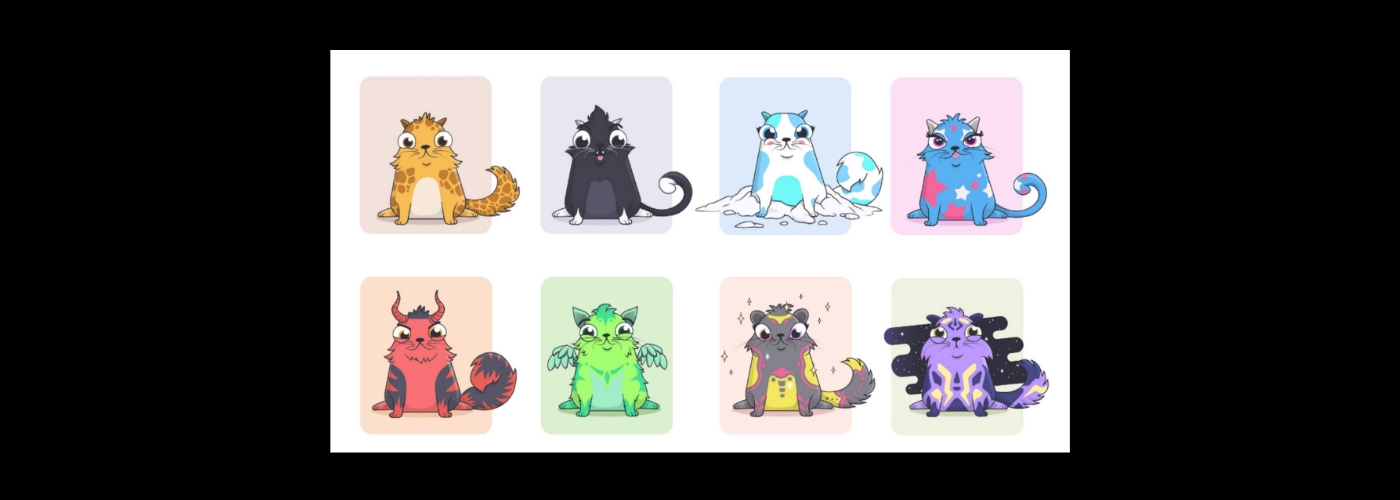Non-Fungible Token (NFT): what it means and how it works

Description
NFTs are cryptographic assets on a blockchain with unique identification codes and metadata that distinguish them from each other. More about Bitcoin and blockchain at exex.com blog
The cryptocurrency market has introduced many new terms and concepts. One of the most common of these is considered NFT.
What is NFT?
Translated from the English language ("non-fungible token"), they mean non-fungible tokens, which are titles of ownership of a variety of virtual objects:
- Text;
- Picture;
- Audio;
- Game item;
- Character;
- Domain name;
- Club card, and so on.
If cryptocurrency is somewhat interchangeable, then one NFT token that represents a picture is not equal to another NFT token from another user, as they can be completely different pictures from different creators, and their value will also be different.
Each NFT is unique and distinctive, and you cannot make a copy of it. All NFTs have identifying information that is recorded in a smart contract. Because of this information, each NFT is different from each other.
The history of the first NFTs began when solutions such as Colored Coins in 2013 and Counterparty in 2014 came along. They became the basis for the tokenization of assets on the Bitcoin blockchain.
Examples of NFT
There are many different NFTs and NFT collections at the moment. One of the most famous is the NFT project Rare Pepe Directory, dedicated to the frog Pepe. It was launched 5 years ago. CryptoPunks and pixel portraits have also become very popular. CryptoPunks have now considered precious blockchain works.

Another famous NFT project is Cryptokitties launched five years ago. They're digital portraits of cats. Each portrait has a unique identifier in the Ethereum blockchain. There are other NFT collections devoted to topics.

How NFTs work
NFTs are created using a process called coinage. In it, NFT data is published to the blockchain. Chasing causes a new block to be created, and the NFT information is verified by validators. The smart contract determines the ownership, and it also manages the ability to transfer NFTs.
When tokens are minted, they are assigned exclusive identifiers associated with a single blockchain address. Each NFT has an owner, and ownership data is made publicly available.
Why NFTs are important
You could say that NFTs are the next step in updating the overall infrastructure of the cryptocurrency world. In addition, they provide a more efficient digital marketplace. When physical assets are transformed into digital assets, it causes intermediaries to disappear completely. No more agents are needed, each of the creators of the works can reach their customers or fans without intermediaries.
In addition, with NFT, it is possible to manage the identification of various physical objects, from a passport to a mansion. NFT also enshrines the right to an exclusive object, creating essentially unique certificates in the digital world.
Advantages and disadvantages of NFT
What are the advantages and disadvantages of NFTs? The advantages are that one can retain the copyright for virtually unlimited periods. In addition, various brands can use NFT to offer their customers different exclusive loyalty programs and provide access to early promotions, thereby growing their business.
NFT also helps to expand the economic opportunities of games and other systems related to the digital economy.
What are the disadvantages of NFT? At the moment, it can be difficult for customers to know whether the NFT they are receiving is really unique because there are many copies of NFTs. Also, the legal mechanisms to prove that NFT is authentic have yet to be fully defined. The user must also understand basic blockchain technology basics if he wants to create NFT products on his own.

NFT in the real and virtual world
NFT can be used in both the real world and the virtual world. For example, the real estate market can be divided into several segments. One segment is located near the coastline, and the other is in a residential complex.
Based on their parameters, each of these plots is unique, has its own value, and is represented as an NFT. They can be traded on the real estate market in the real world without unnecessary bureaucratic procedures. In this case, buying and selling are much faster.
How can I buy NFT?
It is worth noting that the vast majority of NFTs can be bought for the cryptocurrency of the blockchain on which it is issued. For example, to buy an ERC-721 standard token, a user needs to have ETH in their cryptocurrency wallet. Platforms are offering to buy NFTs or entire NFT collections. OpenSea and Rarible are considered one of the most famous platforms. They have catalogs of NFTs with varying costs. The client only needs to choose the object he likes, to make a transaction by paying a specified amount, and after that, he becomes the owner of the NFT object. The number of sites where you can buy NFT is gradually growing, becoming a global network.

Are NFTs safe?
Like any digital asset, NFTs can become subject to hacking. The criminal can move the tokens to his wallet if a customer's wallet is accessed.
There is also a risk that if the site where the NFT is located suddenly stops functioning, access to the NFT will be lost. In addition, there is a risk that a customer will buy a "fake" NFT asset rather than a real one.
What does non-fungible mean?
First, we need to say what non-fungible means. It is a concept that describes the interchangeability of a certain commodity. For example, it could be currencies or commodities (oil).
In turn, non-fungible means that such an object cannot be replaced by any other since it is unique by its very nature.

How are NFTs used in India?
Obviously, non-fungible tokens are in demand today, not only as digital assets. Their use in India is broader and gives a lot of possibilities for use. A large country needs different options to serve its population and a large number of tools to help the people of India. How can NFTs benefit the country?
First, it is a source of investment for the people of India. The NFT industry is just beginning to develop, and it has already become clear that the demand for these tokens will continue. It is possible to use them as part of an investment portfolio, to accumulate at an attractive price TOP collection, while the cryptocurrency industry is in a decline and accumulation stage.
NFT for India, in a large country and territory mode, is a universal technique for transferring ownership. If you live in Delhi or Bangalore, you can make an online sale and transfer the title to a property or art object without being physically present.
Also, artists in India can use NFT to digitize their work and sell it internationally.
Conclusion
At this stage, the NFT market is stagnant, and the cryptocurrency industry is general. However, NFT will spread its influence to various sectors of the economy and society. The introduction of NFT into the education, medicine, and logistics industries will allow them to become more modern and secure from counterfeiting.
Also, NFT may become an element of proof of social status and a kind of access code for privileged communities. Thus, despite many criticisms regarding the uniqueness of NFTs, they are already part of the digital economy.